“…if you are not like everybody else, then you are abnormal, if you are abnormal , then you are sick. These three categories, not being like everybody else, not being normal and being sick are in fact very different but have been reduced to the same thing”
― Michel Foucault
Whilst those involved in constructing and foisting upon us diagnostic schema [like DSM] do claim to identify biological illnesses that have genetic differences and having chemical cures, this is far from any whole truth.
“Diagnostic categories do not cut nature at the joint” Phil Thomas
Whatever it is that gets called “mental illness” and diagnosed as “mental disorder” it is less a specifically identified genetic brain disease than it is some slack-handful cluster of surface level symptoms. Disorders are not determined by laboratory test but by identifying the best match with a compendium of committee-constructed categories each with its own checklist for dummies. Each of these categories has its own online shopping list of what are called “symptoms” but are actually nothing more than human differences – the kind of differences that emerge when we humans can find ourselves struggling in a complex, challenging world that can seem more hostile to life and more mad with each rising of the sun.
All dis-ease or un-wellness, and especially those that get called “mental illnesses” result from a complex combinations of factors – biological, physiological, societal, social and cultural, psychological, emotional, existential and spiritual.
A person does not become ill of themselves – there is always some relation with environment, including the relations with other persons around them, and environment begins the moment one cell divides into two – perhaps even before that.
A human brain does not survive by itself – it exists in relationship with everything around it, including and especially, interaction with other brains. “Mental illness” is never an entity existing within one brain.
If we want to understand how people do become ill so that we can learn to help them become well, then…
“We can not separate the brain from the body and we cannot separate a person from their environment” -Dr. Gabor Maté
A common experience when people become “un-well” is when they find themselves stuck in a constant, energy-sapping, spirit-sucking struggle to survive in a world in which they feel alien, different, disconnected from and misunderstood by – and blamed and shamed by those around them. Many of us get to this place simply exhausted and no longer able to live our life trying to be some version of ourselves that others want us to be.
We may not have been “ill” at all, but this experience might well lead to us becoming very ill indeed until we find a way – our way – out.
No surprise, then, that epidemiological research shows “serious mental illnesses” are many times more prevalent amongst those categorised as different and treated differently:
- poor – risks of all chronic illness including “mental illnesses” rise with exposure to poverty – living in poverty itself is less a factor than is living in poverty in proximity with those more affluent.
- immigrants – including immigrants from rural to urban areas within same cultures but especially immigrants who have darker skin than those they find themselves living amongst are many times more likely to be diagnosed with serious mental illnesses.
- younger – research shows schoolchildren born at the beginning of school year January are many times more likely to be diagnosed with ADHD than those born in December, near the upper level of the age cut off.
More and more of our children are beginning their lives diagnosed with mental illnesses by virtue of nothing more than being different – months younger [and so understandably less developed in their ability to focus] than others in their same school grade year or class.
There are over 7,000,000,000 humans alive right now – we are all different and we do each experience the world in a unique way. We can regard that as a problem or a flaw or we can regard being different as the very reason why there are so many of us.
Some folks used their own difference [in this case a talent for mathematics] to calculate there have been about 150,000,000,000 of us humans so far. Each of these is an example and an opportunity for us to learn and accept that difference is not a problem but a good, valuable and necessary thing. Surely, if we were meant to be identical then we’d be clones or robots: either that or there would only be need for one of us.
Diversity is always good. Monocultures always suck – they may dominate for a while within a specific locality but always end badly and usually in self-destruction.
Diversity is how we learn, adapt and grow. Being different is not sickness – it is a strength.
That said, a big part of human life is a paradox of being both different-enough to be and express who we are, find and make our own meaning; and simultaneously being same-enough to fit with and be a part of our environment.
Neither is fixed, immutable, frozen- each evolves and is part of the other -but in a society with strong norms of fitting-in and not-standing-out, or where people feel they have no agency or power over their environment, no real agency over the bigger part of their lives, it can feel like a one way street: comply to survive or take drugs and die young.
“resistance is futile, you will be or be assimilated” – The Borg
In a society that harnesses its powerful institutions and their claims to knowledge and authority over others, [professional institutions, academia, lobbies corporations and law-making]; and deploys its resources [media, hospitals, and law enforcement] to ensure compliance with somebody’s notions of what’s “normal”, every act of diversity becomes a small act of resistance.
Living in this can feel like a trap, and leave us isolated, depleted and unwell.
It could also lead us to regard our own life as a unique expression of the very essence of life – an expression of why we are all here in the first place.
Being different is not abnormal but the very essence of normal.
Being different is not being sick but being vital and alive.
Resistance is not futile – it is why we are here.






















































































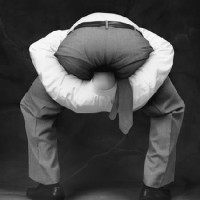
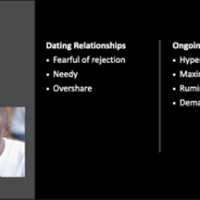

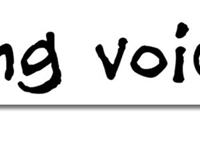


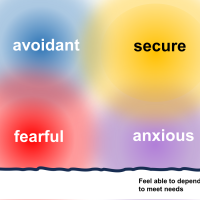
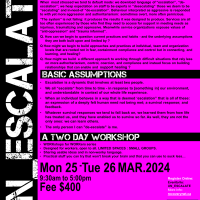
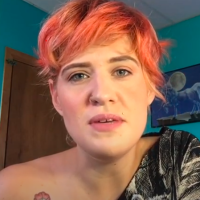





LOVE!
LikeLiked by 1 person
🙂
LikeLike
Reblogged this on Type B Negative and commented:
You have to love Foucault!
LikeLike
Hi Jen
Nice one.
LikeLike